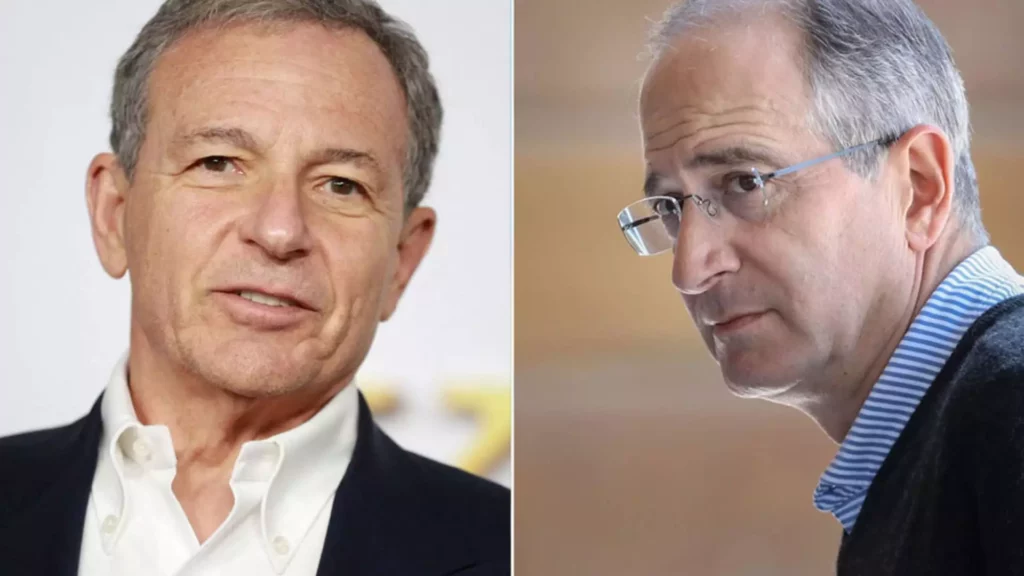As we approach the end of another year, the media and entertainment industry is filled with speculation and excitement as executives offer their expectations for the upcoming 2025. This festive tradition provides a unique lens into the rapidly evolving realm of content creation, distribution, and consumption. Through a series of anonymous forecasts, key players in the industry shed light on potential shifts, mergers, and trends that could reshape the landscape. In this article, we will explore these predictions and the implications they hold for the industry at large.
One prominent theme among predictions is the continued consolidation within media companies. With the landscape in flux due to cord-cutting trends and declining valuations for traditional pay-TV, industry leaders are contemplating substantial mergers and acquisitions. Executives from various companies believe that a pro-business regulatory climate under a new administration could pave the way for deals that were previously stymied. Comcast’s rumored ambitions to unite the two largest cable providers—a move reminiscent of its 2015 bid to acquire Time Warner Cable—hints at a desire for increased market share. However, industry insiders remain skeptical, questioning whether such consolidations can genuinely resolve the underlying issues facing these companies.
The concept of companies like Fox, historically regarded as a formidable player in the media world, potentially acquiring significant assets from Warner Bros. Discovery raises eyebrows. Such a move could dramatically alter competitive dynamics, especially as the Murdoch family trust faces uncertain prospects. Conversely, some predict that Fox may opt for divestiture given the current instability that has clouded its future.
Leadership transitions are a constant in the media domain, and predictions indicate that we may see noteworthy changes. Disney is notably formulating plans to appoint a new CEO ahead of 2026, with industry speculation suggesting Dana Walden as a frontrunner. The current board’s deliberation indicates the need for thoughtful leadership to navigate the complexities highlighted by past transitions. As companies grapple with their identity and direction, the right leadership will play a pivotal role in prioritizing strategic initiatives while maintaining continuity.
Interestingly, the potential sale of Electronic Arts (EA) adds another layer to these leadership considerations. The gaming giant is reportedly in discussions with major players such as Netflix and Amazon, which could lead to a significant shift in how content is created and experienced. As EA continues to blend gaming with storytelling, its acquisition may offer new avenues for creative collaborations in the media landscape.
Streaming: The New Battleground
Streaming services continue to dominate discussions about the future of media, as major corporations reposition themselves to maximize their digital footprints. Predictions suggest we will see unexpected collaborations aimed at creating comprehensive bundles that feature services from major players like Paramount Global and NBCUniversal. This movement toward bundled offerings could provide greater value to consumers who are increasingly selective about their subscriptions in a crowded market.
Furthermore, the anticipated launch of ESPN’s flagship streaming service in late 2025 could signal a major shift in sports viewership. As ESPN enters the stream-only landscape, traditional television may increasingly give way to digital formats, compelling other networks to respond and adapt accordingly. This development aligns with the projected decline of initiatives like Venu, indicating a clear effort by media giants to streamline their offerings amid growing competition.
While the idea of mergers and acquisitions can be enticing, one executive’s dissenting voice highlights the potential pitfalls inherent in aggressive consolidation attempts. The expectation that mergers will solve the industry’s mounting challenges is not universally accepted. Instead, these unpredictably evolving global trends call for creative solutions that focus on innovation and relevance rather than mere scale.
As the media and entertainment industry moves forward into 2025, the focus will not only be on how companies choose to consolidate but also on how they respond to the dynamic preferences of consumers. Streaming services will need to pivot swiftly to adapt to emergent viewer habits, emphasizing quality content and diverse offerings. The anticipated digital-first approach is likely to dominate conversations around media strategies in the coming year.
As we reflect on the collective insights of industry executives, it is clear that 2025 holds the potential for transformative changes across media channels. From anticipated leadership changes to the deliberation of major consolidations, the future of entertainment is set to evolve rapidly. However, navigating these challenges will require innovative thinking and a commitment to understanding what audiences truly seek in an ever-diversifying landscape. The upcoming year sets the stage for intriguing developments and a remarkable reimagining of how we consume content. May we brace ourselves for exhilarating changes and the continual unraveling of what lies ahead in this vibrant industry.

